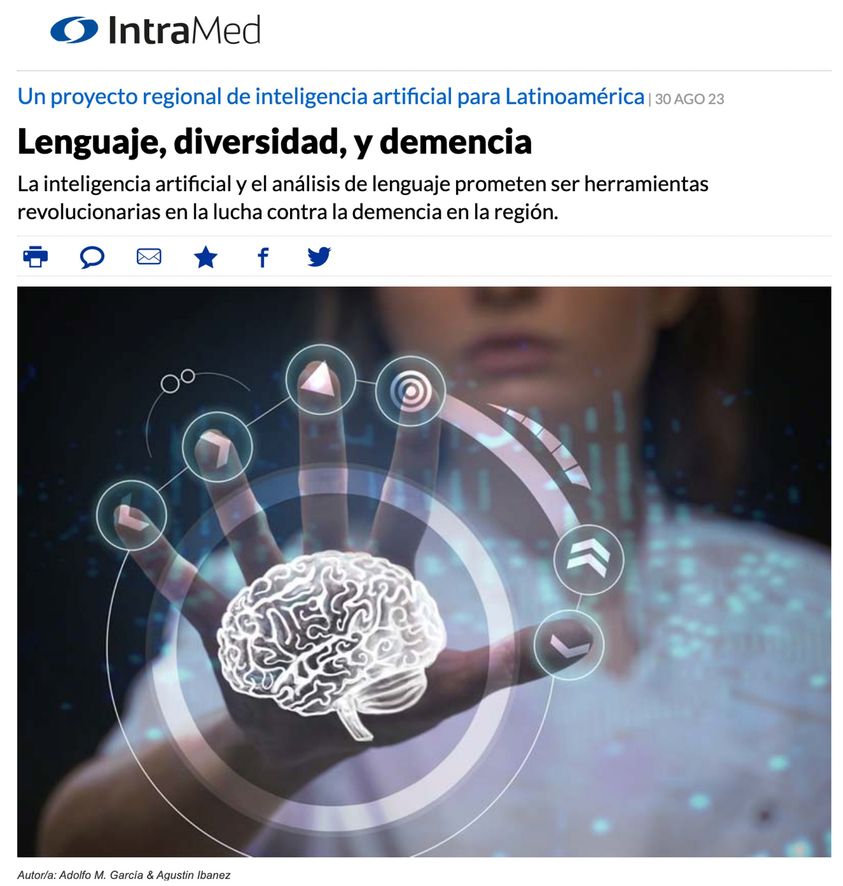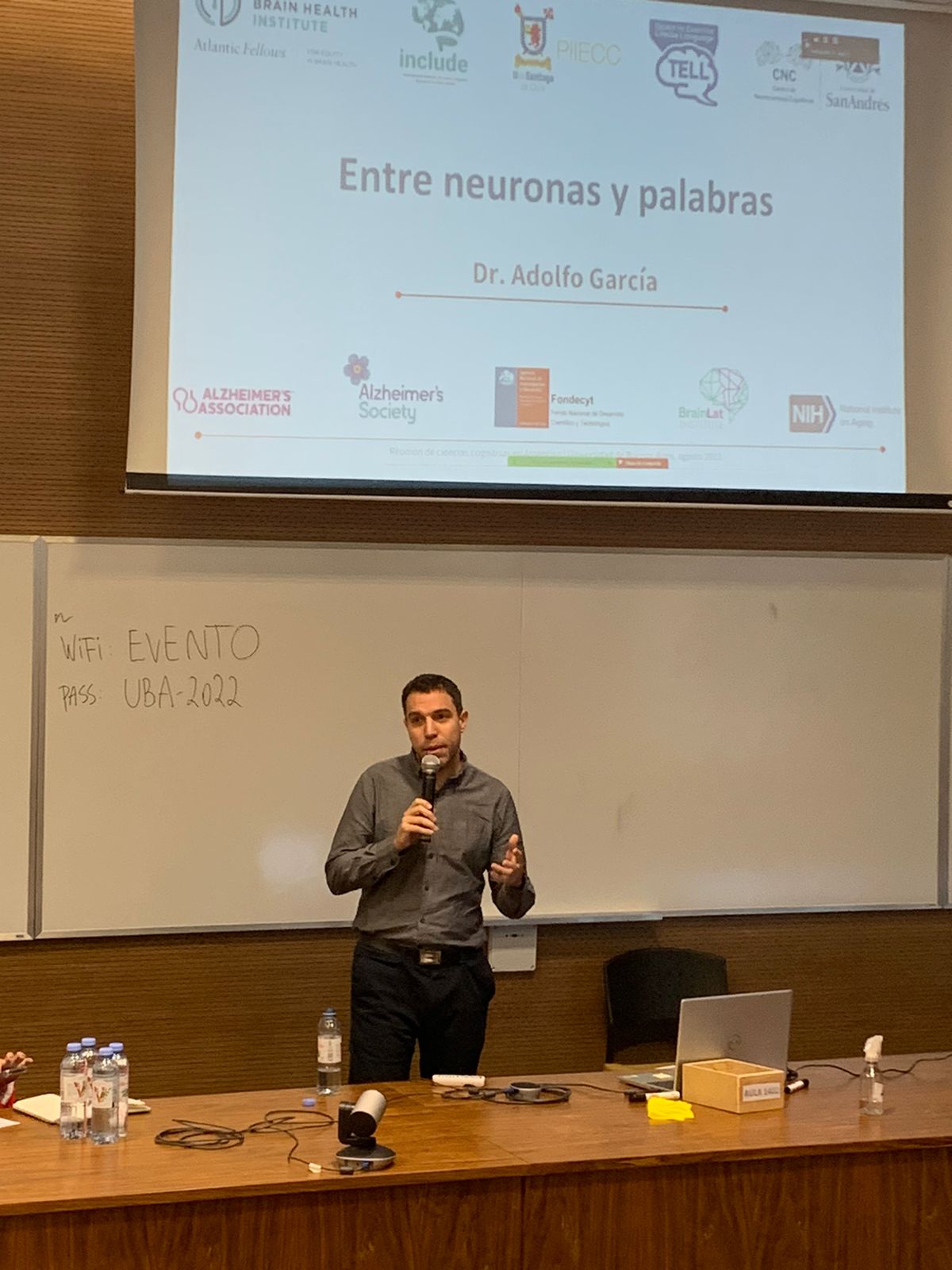Lenguaje, diversidad, y demencia
Latinoamérica, una región con grandes desigualdades, prevé un aumento de los casos de demencia de entre 180-250% para 2050. Entre el 70-90% de los pacientes no tiene acceso oportuno a cuidados de salud adecuados. La inteligencia artificial y el análisis de lenguaje prometen ser herramientas revolucionarias en la lucha contra la demencia en la región. Con un grupo de investigadores hemos iniciado un estudio que combina estas herramientas para evaluar a más de 2500 participantes de Latinoamérica (Argentina, Chile, Colombia, México y Perú) y EE.UU. Buscamos detectar cambios en el lenguaje relacionados con enfermedades como el Alzheimer y la demencia frontotemporal. Este esfuerzo, parte del consorcio ReDLat, tiene el potencial de ofrecer diagnósticos más precisos y tempranos para los latinos, reduciendo costos y tiempos de pruebas, y promoviendo tratamientos más efectivos y oportunos.
Para leer la nota completa, hacé click aquí.
Language, diversity, and dementia
Latin America, a region with great inequalities, foresees an increase in dementia cases of about 180-250% by 2050. 70-90% of patients do not have timely access to adequate healthcare. Artificial intelligence and language analysis promise to be revolutionary tools in the fight against dementia in the region. With a group of researchers, we have initiated a study that combines these tools to evaluate more than 2500 participants from Latin America (Argentina, Chile, Colombia, Mexico and Peru) and the U.S. We seek to detect changes in language related to diseases such as Alzheimer’s and frontotemporal dementia. This effort, part of the ReDLat consortium, has the potential to provide more accurate and earlier diagnoses for Latinos, reducing costs and testing times, and promoting more effective and timely treatments.
To read the full article, please click here.



